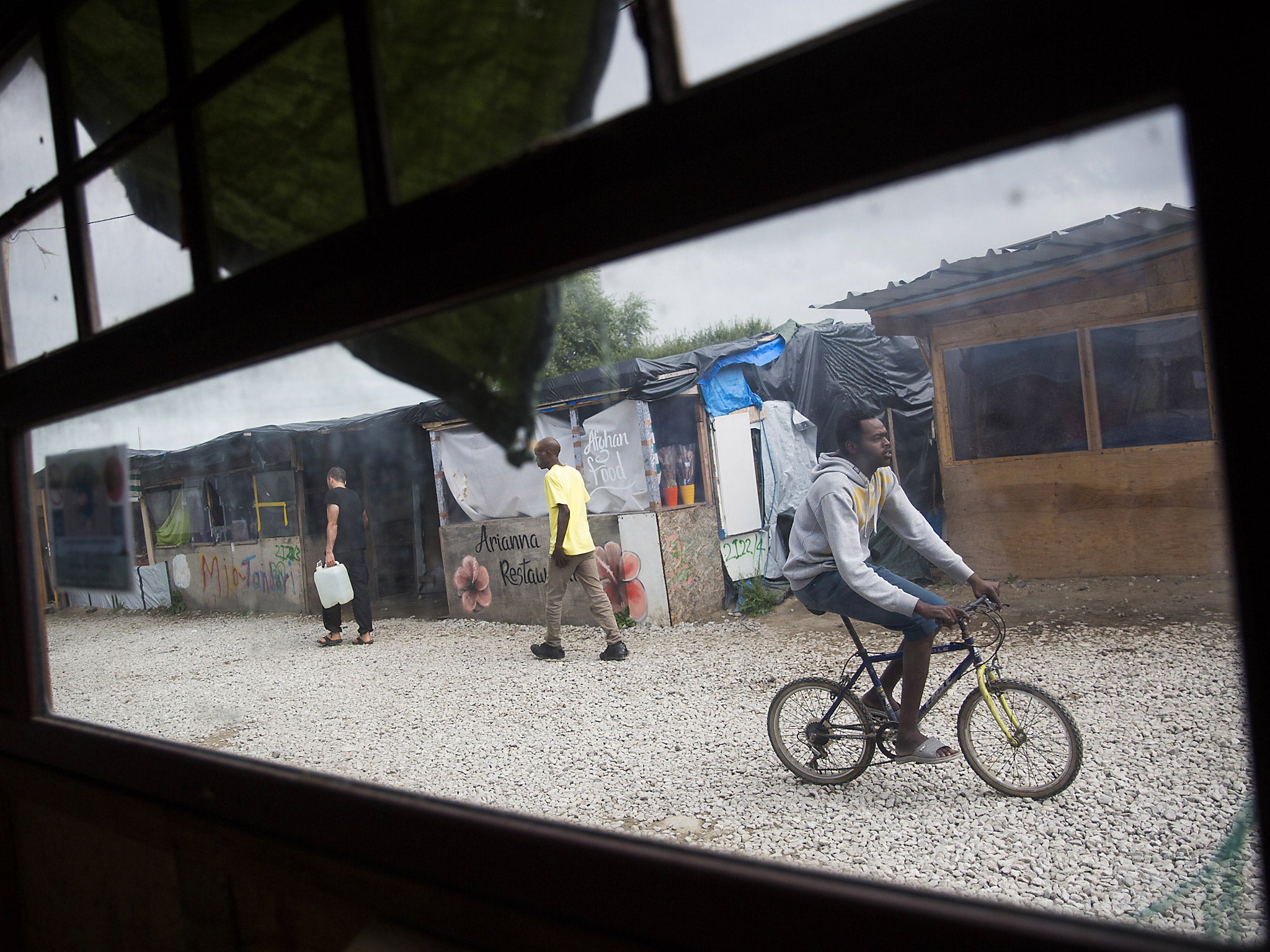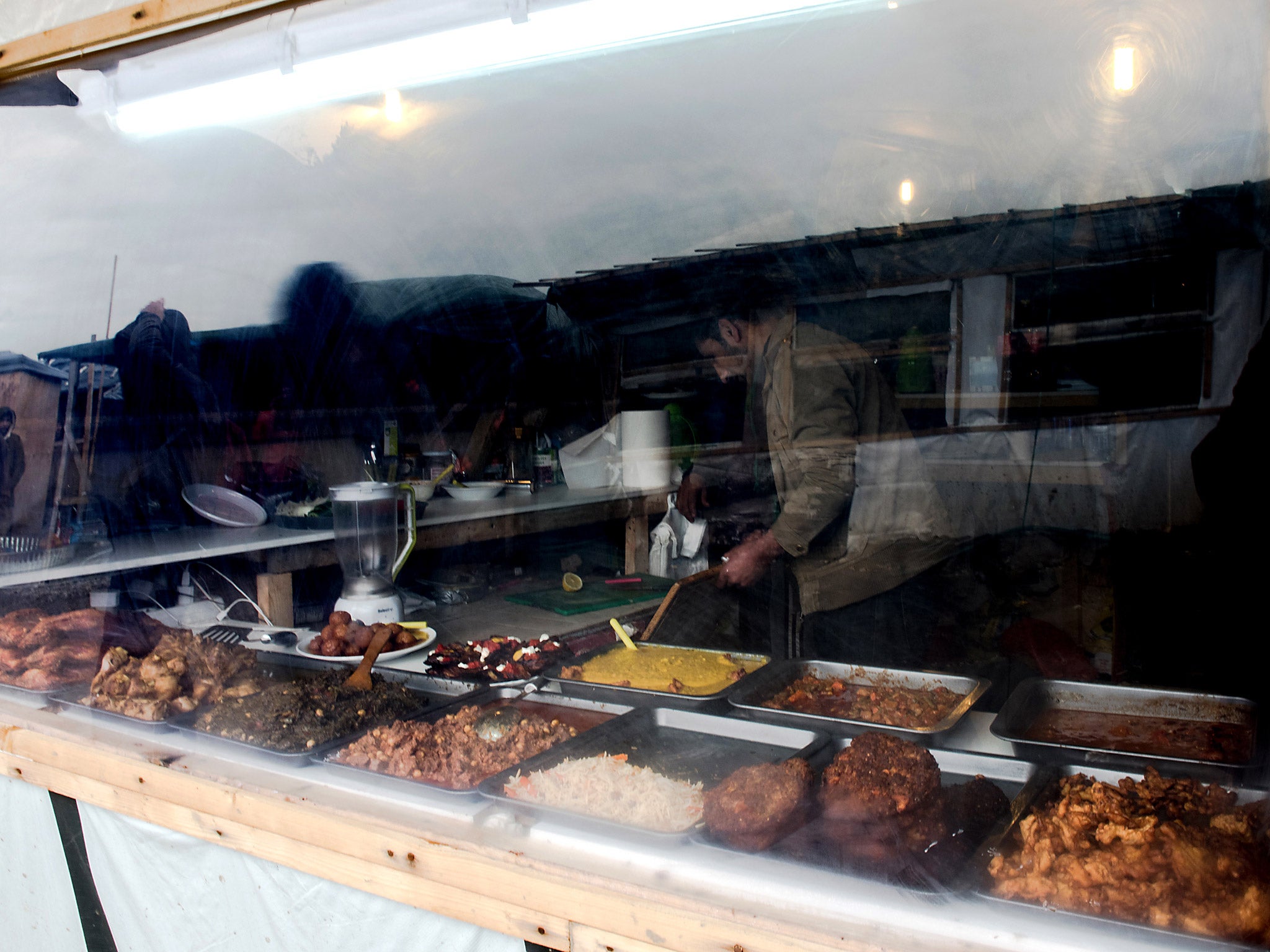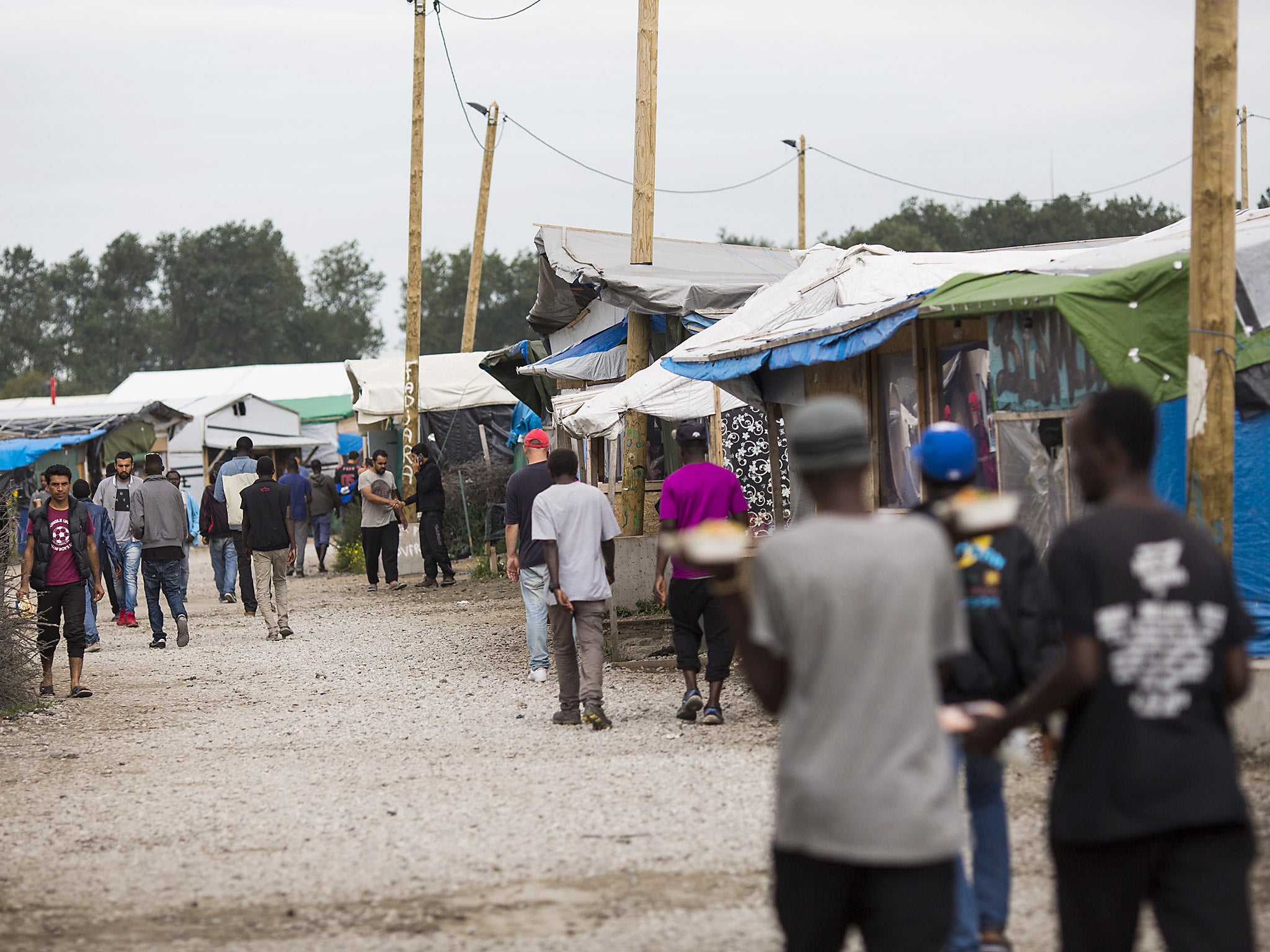Calais Jungle shops are shutting down for good
As migrants living in the Calais Jungle move out ahead of its demolition, the makeshift shops set up to serve them are also shutting down for good, stirring mixed feelings in those who found a community within the camp

Your support helps us to tell the story
From reproductive rights to climate change to Big Tech, The Independent is on the ground when the story is developing. Whether it's investigating the financials of Elon Musk's pro-Trump PAC or producing our latest documentary, 'The A Word', which shines a light on the American women fighting for reproductive rights, we know how important it is to parse out the facts from the messaging.
At such a critical moment in US history, we need reporters on the ground. Your donation allows us to keep sending journalists to speak to both sides of the story.
The Independent is trusted by Americans across the entire political spectrum. And unlike many other quality news outlets, we choose not to lock Americans out of our reporting and analysis with paywalls. We believe quality journalism should be available to everyone, paid for by those who can afford it.
Your support makes all the difference.An island of comfort in the squalid Calais Jungle, the Khyber Pass Cafe is one of the few still serving customers even as migrants heed an eviction order and camp residents move out.
Open since April, the cafe has been housed in a large forest green-coloured tent. Inside, migrants and aid workers sip tea and coffee, and eat succulent-looking traditional Pakistani dishes, including beans soaked in a spicy sauce and saffron rice.

“Our menu is limited today. We are hours from closing down,” said Soheil, its 33-year-old owner, who did not reveal his last name for security reasons. When Soheil arrived in the Jungle on 7 April , he was “shocked” by the state of the camp, which migrants have used as a launchpad for dangerous attempts to reach Britain.
“I decided the only way forward was to set up this cafe. I go to work the very next day,” said the former sales executive, who spent several years in Dubai and speaks good English.
It took Soheil two weeks to build the Khyber Pass Cafe, named after his native region, which borders Afghanistan. Its flimsy walls are covered in silver and gold paper, with flags of Egypt, Sudan and Syria pinned up, as a welcoming gesture to guests from all over the world. In some ways it serves as a symbol for the community spirit some see in the Jungle.
In Pakistan, Soheil was an influential member of his tribe. But after an assassination attempt by the Taliban last year, it was the elders of his own tribe who advised him to flee, he says. Asked whether he dreams of returning to Pakistan, he says his “priorities have changed now. I used to put my tribe first.”
“My dream is to end up somewhere in Brittany. I have never been, but I have seen pictures, and it is beautiful. I want to open a restaurant, a proper one this time, and I want to help others who are less fortunate,” he says, sitting back on a green couch.
“I will also call the new restaurant Khyber, just like this one.”
Nearby, Jaan Sina, a 26-year-old from Afghanistan braves the chilly Calais weather as he stands by his stall, looking for buyers for the last of his merchandise.
He sells shoes, cell phone battery packs, plastic cutlery, umbrellas, padlocks, washing up liquid and cigarette filters – an odd mixture of goods that are all vital for day-to-day survival in the Jungle.
But Sina, who used to be a taxi driver before he came to the Jungle, is now advertising discounted rates, as he too gets ready to leave.
“As soon as everything is sold, I am getting out of here,” said the young man, wearing a grey scarf around his head to keep out the cold, but only flip flops on his feet.
“These shoes used to cost 17 euros. Today, I’ll give them to you for 10!” said the keen salesman, holding up a pair of black and fluorescent green trainers.
Like many others in the Jungle, Sina fears being separated from the community he has built here.

“Here in the Jungle, all Afghans are one. But from now on, each of us will go our own way. That is what makes me sad,” he says.
As the end of the first day of the evacuation draws near, most of the shops, restaurants and cafes that were once bustling with life here are already shut.
But even now, music still blasts in the background from a loudspeaker as a group of men sit around a camp fire for a last night in what, for better or worse, has become home for several thousands.
One group of Afghans gather around another stall a short walk away along a muddy alleyway, sharing tea.
“Everything you see here, even the shoes, you can have them at one or two euros,” said Muman, a 23-year-old also from Afghanistan, pointing at all that remains on sale at this bare-looking street stall.
“We’re leaving the Jungle. We don’t want trouble with the police,” said the young man, in a brown leather jacket and grey trousers, who used to work as a farmer.
All he’s waiting for is to sell off a pair of black trainers, two phone covers and a few battery packs.
“It’s over. No more UK for me. I’m staying in France.”
© AFP
Join our commenting forum
Join thought-provoking conversations, follow other Independent readers and see their replies
Comments